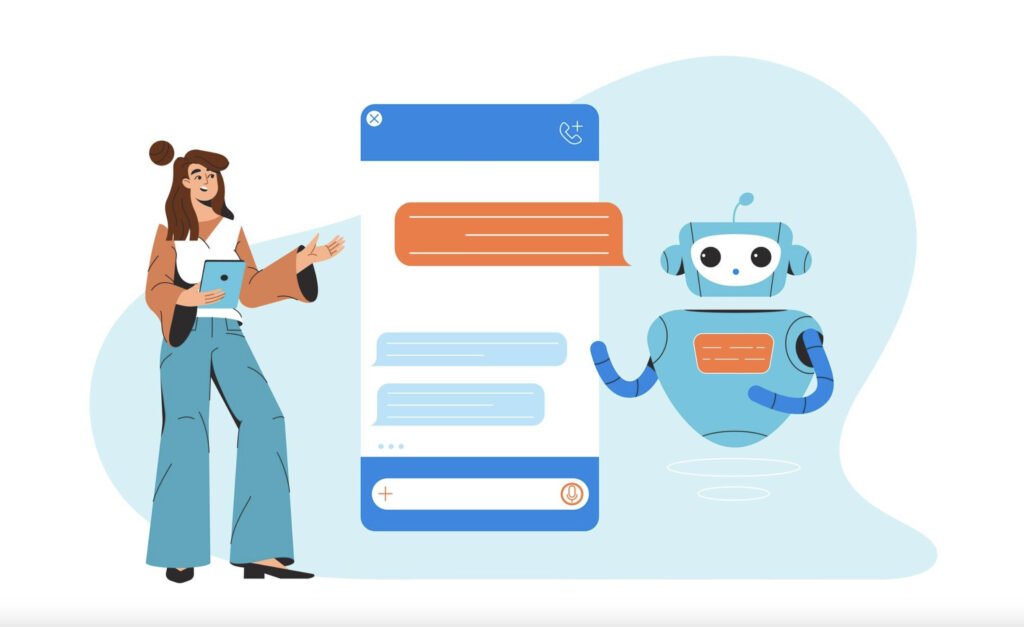Chatbots and virtual assistants have become essential tools for eCommerce businesses looking to enhance customer service. With online shoppers expecting instant responses and seamless experiences, AI-driven solutions provide an efficient way to handle inquiries, guide users through the buying process, and resolve issues quickly. By integrating these technologies, businesses can improve customer satisfaction, increase efficiency, and reduce operational costs.
What Are Chatbots and Virtual Assistants?
Chatbots and virtual assistants are AI-powered tools designed to simulate human conversation and assist users in real-time. While they are often used interchangeably, there are some key differences:
- Chatbots typically operate based on pre-programmed responses and AI-powered learning models, handling common customer inquiries like order tracking, FAQs, and basic support.
- Virtual assistants are more advanced, capable of understanding complex queries, personalizing interactions, and even assisting with shopping recommendations.
In eCommerce, both technologies play a vital role in enhancing the customer journey, from initial engagement to post-purchase support.
Benefits of Using Chatbots and Virtual Assistants in eCommerce
1. 24/7 Customer Support
One of the most significant advantages of using chatbots and virtual assistants is their ability to provide round-the-clock support. Unlike human agents, AI-powered solutions don’t require breaks, ensuring customers receive instant responses at any time of the day. This is especially beneficial for global eCommerce businesses that cater to customers across different time zones.
2. Personalized Shopping Experience
AI-driven chatbots can analyze customer behavior, browsing history, and preferences to offer tailored product recommendations. By integrating with customer relationship management (CRM) systems, virtual assistants can provide a personalized shopping experience, leading to higher engagement and conversion rates.
3. Efficient Order Management
Chatbots streamline order-related tasks by helping customers track shipments, modify orders, and process returns without needing human intervention. This reduces wait times and enhances overall customer satisfaction by providing instant solutions to common concerns.
4. Cost Savings
Hiring and training a large customer service team can be expensive. Implementing AI-powered chatbots allows businesses to automate a significant portion of customer support, reducing operational costs while maintaining high-quality service. This also frees up human agents to handle more complex issues that require personalized attention.
5. Multilingual Support
For eCommerce businesses catering to international customers, chatbots can bridge language gaps by offering multilingual support. AI-powered assistants can automatically detect and respond in a user’s preferred language, ensuring smooth communication and a more inclusive shopping experience.
6. Improved Customer Engagement
Unlike static FAQ pages, chatbots offer interactive conversations that engage customers in real time. They can proactively initiate chats, provide product suggestions, and guide users through the sales funnel, ultimately improving customer retention and boosting conversions.
Implementing Chatbots and Virtual Assistants in eCommerce
To successfully integrate AI-powered assistants, businesses should:
- Choose the Right Solution: Select a chatbot or virtual assistant based on business needs—whether for handling customer inquiries, providing shopping recommendations, or managing orders.
- Integrate with Existing Platforms: Ensure seamless integration with eCommerce platforms like Shopify, WooCommerce, or Magento.
- Optimize for Performance: Regularly update AI models to enhance chatbot efficiency and minimize errors in customer interactions.
Challenges and Considerations
Despite their benefits, chatbots and virtual assistants also come with challenges:
- AI Limitations: While advanced, AI still struggles with complex or nuanced customer queries. Businesses must provide easy access to human agents when necessary.
- Balancing Automation and Human Support: Over-reliance on AI can lead to frustration if chatbots fail to resolve issues. A hybrid model combining automation with human assistance ensures a better customer experience.
- Data Security and Privacy: Protecting customer data should be a priority. Implementing strong security measures ensures compliance with privacy regulations and builds customer trust.
Future Trends in AI-Powered Customer Service
As AI technology evolves, chatbots and virtual assistants will become even more sophisticated. Key trends shaping the future include:
- Advancements in Conversational AI: AI-powered chatbots will improve in natural language processing (NLP), making conversations more human-like.
- Voice-Activated Assistants: The rise of voice commerce will drive more businesses to integrate voice-enabled virtual assistants for hands-free shopping experiences.
- Predictive Customer Support: AI will leverage customer data to anticipate issues before they arise, offering proactive solutions and enhancing customer satisfaction.
Conclusion
The integration of chatbots and virtual assistants in eCommerce customer service is no longer just an option—it’s a necessity. These AI-driven tools enhance efficiency, provide personalized support, and improve customer engagement while reducing operational costs. As technology advances, businesses that embrace AI-powered customer service solutions will gain a competitive edge in the ever-evolving eCommerce landscape.


